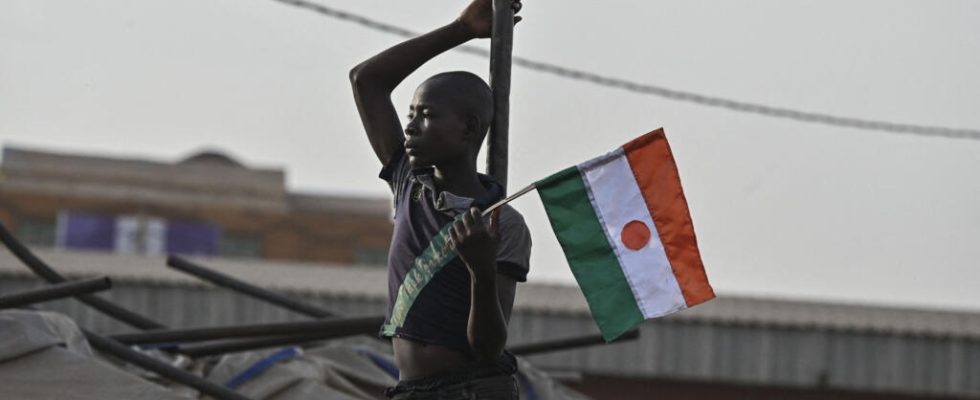On July 26, 2023, the president of Niger, Mohamed Bazoum, was overthrown by a military coup. Two months later, the National Council for the Safeguarding of the Fatherland (CNSP) came to power but its political situation on the international scene and economic situation on the domestic scene remain complicated. Explanations.
2 mins
It was two months ago to the day: the military took power in Niamey, on July 26, 2023. A coup d’état in Niger immediately denounced by the Economic Community of West African States (ECOWAS) which imposed heavy economic sanctions on the country.
Since then, the regime has appointed a government led by Ali Mahamane Lamine Zeine. The junta wants to implement a 3-year transition. But the political situation remains complicated.
A still fragile power
The junta has good having won its standoff with France by obtaining the imminent departure of its ambassador and his 1,500 soldiers, his power remains fragile.
The international community still does not recognize its legitimacy. Its representative was unable to speak last week at the United Nations General Assembly. The European Union ambassador in Niamey repeated last week to the Nigerien Prime Minister that he would not let go of Mohamed Bazoum, the ousted president. A line of firmness shared by ECOWAS, which has not yet formally buried the idea of military intervention in the country.
This clearly still arouses concern among Nigerien putschists. A sign of this fear: armored vehicles are regularly deployed on the main roads surrounding the Nigerien capital.
Read alsoNiger: after the imbroglio at the UN, the junta denounces the “treacherous actions” of Antonio Guterres
On an economic level, the ECOWAS sanctions are also weakening the country, even if it manages to hold on. The supply of essential goods is of course impacted by the closure of the borders with Nigeria and Benin, with the consequence in particular of the increase in the price of basic cereals. But the situation is not as dramatic as expected, as economist Ibrahim Adamou Louché explains at the microphone of Pierre Firtion : “ It has not escaped you that we are in the winter period and we are approaching the harvest, which means that, despite the closure and the drop in the supply of certain basic necessities, the population continues to draw both on existing stock, therefore at the local level, but also to take full advantage of the current harvest. »
If the sanctions continue, the situation could therefore deteriorate in the coming weeks. Economic problems and a deterioration in the security situation could further weaken the power of the junta and strain relations between the generals.
For now, the military intends to take power. They said it, their transition is expected to last 3 years maximum.
